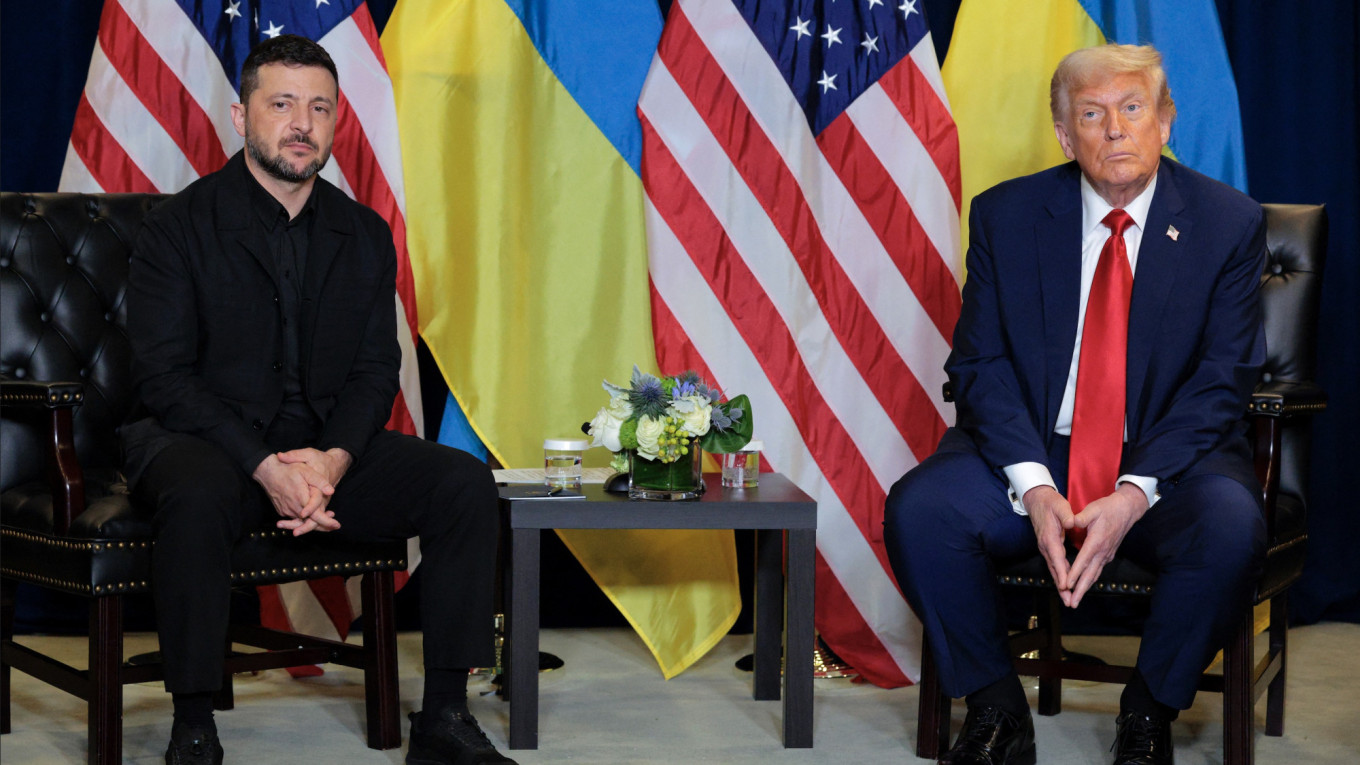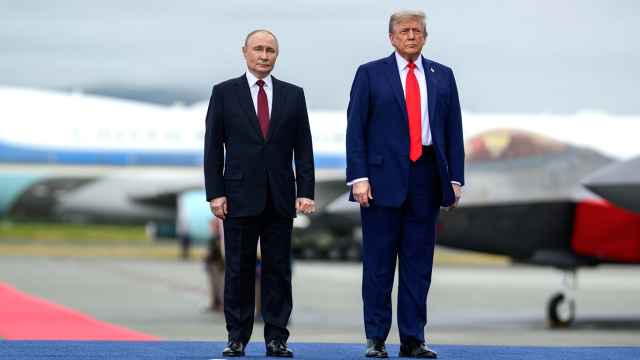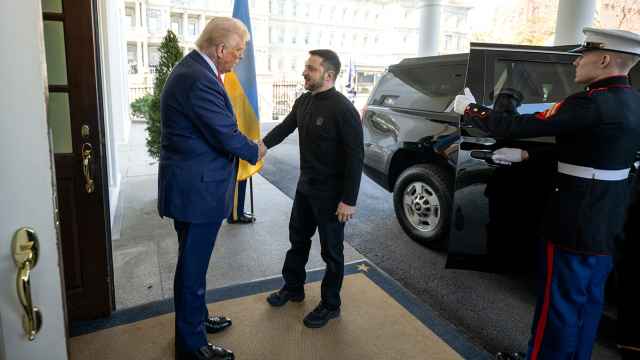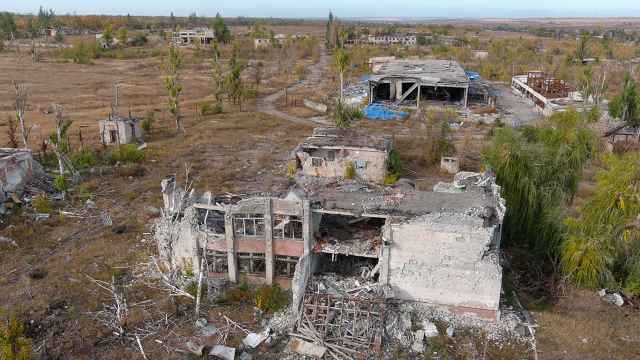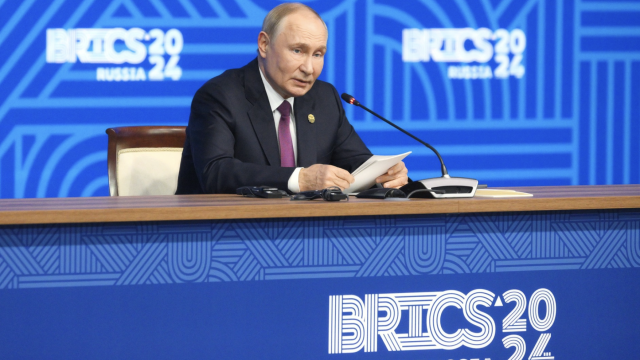U.S. President Donald Trump has a remarkable ability to be appear differently to different people. Like the Wizard of Oz, now he is a giant talking head, now a beautiful maiden, now a beast, now a ball of fire. The man behind these disguises is hard to pin down, and yet the fate of whole countries depends on what Trump really thinks — nowhere more so than in the case of Russia’s aggression against Ukraine.
Trump’s latest pronouncement on the war in Ukraine was as enigmatic as ever. Writing on Truth Social on Sept. 23, Trump — who had previously called the war in Ukraine “Zelensky’s war” — declared that Kyiv “is in a position to fight and WIN all of Ukraine back in its original form,” and even suggested that the Ukrainians could push beyond the borders of 1991. “Good luck to all,” he added, in a twist that added very little clarity to his message.
Yet the message was welcomed by those who have pinned their hopes on Trump coming around to support Ukraine. It was read as an indication of the U.S. president’s frustration with Vladimir Putin and a sign that perhaps his bromance with the Russian dictator was over.
More careful observers doubt this interpretation. For instance, Polish Prime Minister Donald Tusk concluded that “behind this [Trump’s] surprising optimism lies a promise of reduced U.S. involvement and a shift of responsibility for ending the war to Europe.” “Better truth than illusions,” he added.
Seeing how Trump’s position on Ukraine has shifted in recent months, it is unwise to think that his latest pronouncement represents a new departure. It is already obvious that the United States has no real appetite for deep entanglement in Ukraine. The best that can be hoped for is that Washington will continue providing intelligence and military aid to Ukraine (as long as the Europeans are willing to foot the bill). It is Europe that now must step up by keeping Ukraine afloat and well supplied with weapons. It is Europe, too, that must live with the consequences of a prolonged war on the continent.
The consequences are going to be dire. Ukraine has, of course, borne the brunt of the conflict. In addition to the terrible human toll of hundreds of thousands of casualties and millions of permanently displaced people, Ukraine has been devastated economically. A rapid recovery is not in the cards. As the war continues, the costs will continue to mount, dragging the country to the brink of insolvency and perhaps an outright collapse.
Russia, too, has been battered by the war. Suffering from high inflation, prohibitive interest rates, a growing budget deficit, labor shortage and unsustainable military spending, Russia’s economy is a slow train wreck. The prospects are getting worse with every month of fighting. If Russia loses the war, it will likely succumb to chaos and fragmentation. If it wins, an authoritarian, broken Russia will have to bear the prohibitive political and economic costs of the reconstruction of Ukraine.
The Europeans have fared better. But after three and a half years of an economic war with Russia, Europe, too, is paying the price: higher energy costs, losses from the interruption of trade and the burden of defense spending. Factor into this the difficult choices that the Europeans will have to make to reduce their dependence on China, and the picture that emerges is one of economic stagnation, growing unemployment, and lower living standards. All of this will feed right-wing populism in European politics, pointing to a real danger of an authoritarian turn.
It is increasingly obvious that Europe, Ukraine and Russia will be the main losers of this war. There is a parallel here to Europe’s self-immolation in 1914-18 and 1939-45. These conflicts devastated the continent, ending the age of Europe’s preponderance. Western Europe recovered economically under American tutelage and finished the Cold War on the winning side. But in recent years, its relative economic power has shrunk considerably in the face of the rise of the Global South. The last thing it needed was another protracted war.
In the coming years, Europe, Ukraine and Russia will grow weaker and even less globally relevant. Other countries, in particular China and the United States, will set the rules of the game. And future historians, working on the history of this war, will ask in bemusement how the Europeans could have done this to themselves: not once, not twice, but three times in a row.
A Message from The Moscow Times:
Dear readers,
We are facing unprecedented challenges. Russia's Prosecutor General's Office has designated The Moscow Times as an "undesirable" organization, criminalizing our work and putting our staff at risk of prosecution. This follows our earlier unjust labeling as a "foreign agent."
These actions are direct attempts to silence independent journalism in Russia. The authorities claim our work "discredits the decisions of the Russian leadership." We see things differently: we strive to provide accurate, unbiased reporting on Russia.
We, the journalists of The Moscow Times, refuse to be silenced. But to continue our work, we need your help.
Your support, no matter how small, makes a world of difference. If you can, please support us monthly starting from just $2. It's quick to set up, and every contribution makes a significant impact.
By supporting The Moscow Times, you're defending open, independent journalism in the face of repression. Thank you for standing with us.
Remind me later.



